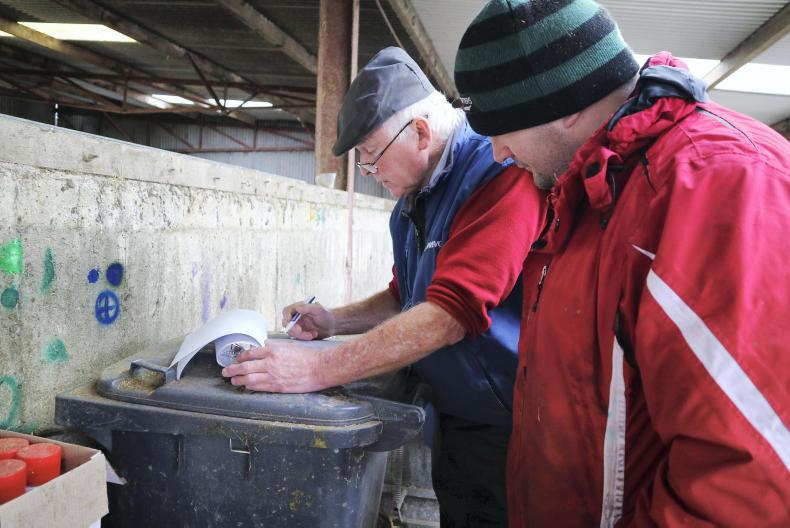Farmers need to be aware that the end of year two of the Knowledge Transfer (KT) Programme is approaching. Year two concludes on 31 July 2018 and there are a number of requirements participants must complete before this deadline with their KT facilitator.
Participants or their nominees are required to attend and sign into either a minimum of five KT group meetings or four meetings and one Department of Agriculture-approved national event for each year of the programme.
They can also now attend just three group meetings and two national events each year.
Each beef, sheep and dairy participant or their nominee must complete a farm improvement plan with their approved KT facilitator. A plan must consist of the following:
E-profit monitor: this must be completed in year one of the KT programme and updated on an annual basis thereafter. Breeding plan: beef and dairy participants must complete an ICBF breeding plan in year one and update on an annual basis thereafter.Animal health measures: participants must complete the animal health measure with a Department-approved KT private veterinary practitioner in year one and update on an annual basis thereafter.Grassland management plan: Participants must complete a grassland management plan in year one and update on an annual basis thereafter.Farm health and safety: Participants must complete the farm health and safety requirements with their KT facilitator in year one and update annually thereafter.Dairy and sheep participants must also complete a Bord Bia carbon navigator in year one of the scheme and update it annually thereafter.
Animal health
In this week’s Irish Farmers Journal, we have included an Animal Health Magazine.
The main theme of the magazine stresses the fact that prevention is better than cure, when it comes to disease on the farm. The animal health measure in the Knowledge Transfer Programme is an excellent extra incentive for farmers to make contact with your vet.
Take the opportunity to discuss any animal health issues you had on the farm and come up with a plan to prevent the problems happening in the future.
Farmers need to be aware that the end of year two of the Knowledge Transfer (KT) Programme is approaching. Year two concludes on 31 July 2018 and there are a number of requirements participants must complete before this deadline with their KT facilitator.
Participants or their nominees are required to attend and sign into either a minimum of five KT group meetings or four meetings and one Department of Agriculture-approved national event for each year of the programme.
They can also now attend just three group meetings and two national events each year.
Each beef, sheep and dairy participant or their nominee must complete a farm improvement plan with their approved KT facilitator. A plan must consist of the following:
E-profit monitor: this must be completed in year one of the KT programme and updated on an annual basis thereafter. Breeding plan: beef and dairy participants must complete an ICBF breeding plan in year one and update on an annual basis thereafter.Animal health measures: participants must complete the animal health measure with a Department-approved KT private veterinary practitioner in year one and update on an annual basis thereafter.Grassland management plan: Participants must complete a grassland management plan in year one and update on an annual basis thereafter.Farm health and safety: Participants must complete the farm health and safety requirements with their KT facilitator in year one and update annually thereafter.Dairy and sheep participants must also complete a Bord Bia carbon navigator in year one of the scheme and update it annually thereafter.
Animal health
In this week’s Irish Farmers Journal, we have included an Animal Health Magazine.
The main theme of the magazine stresses the fact that prevention is better than cure, when it comes to disease on the farm. The animal health measure in the Knowledge Transfer Programme is an excellent extra incentive for farmers to make contact with your vet.
Take the opportunity to discuss any animal health issues you had on the farm and come up with a plan to prevent the problems happening in the future.






 This is a subscriber-only article
This is a subscriber-only article









SHARING OPTIONS: